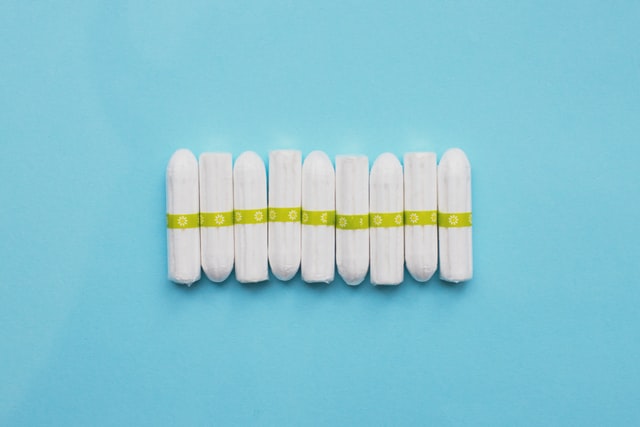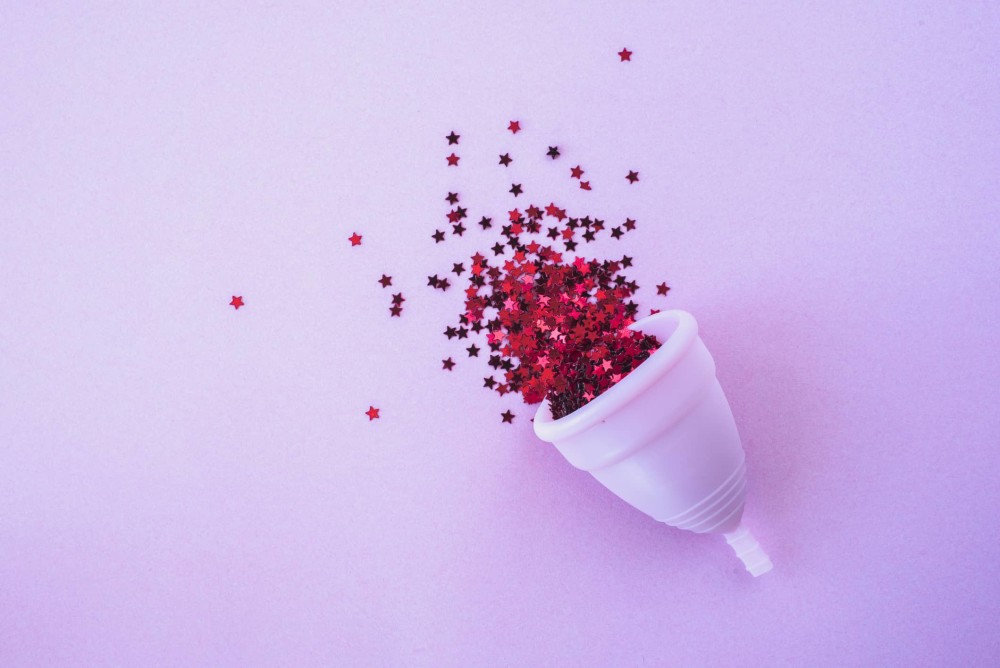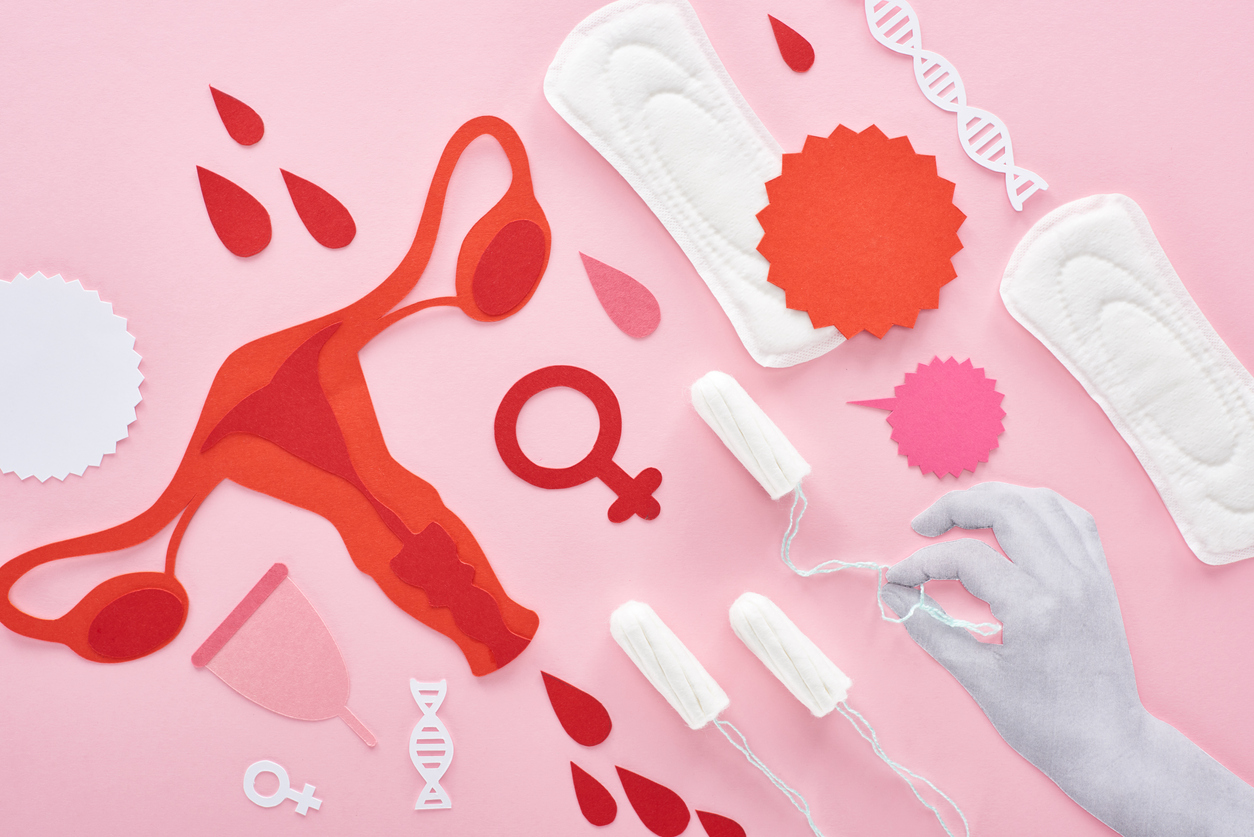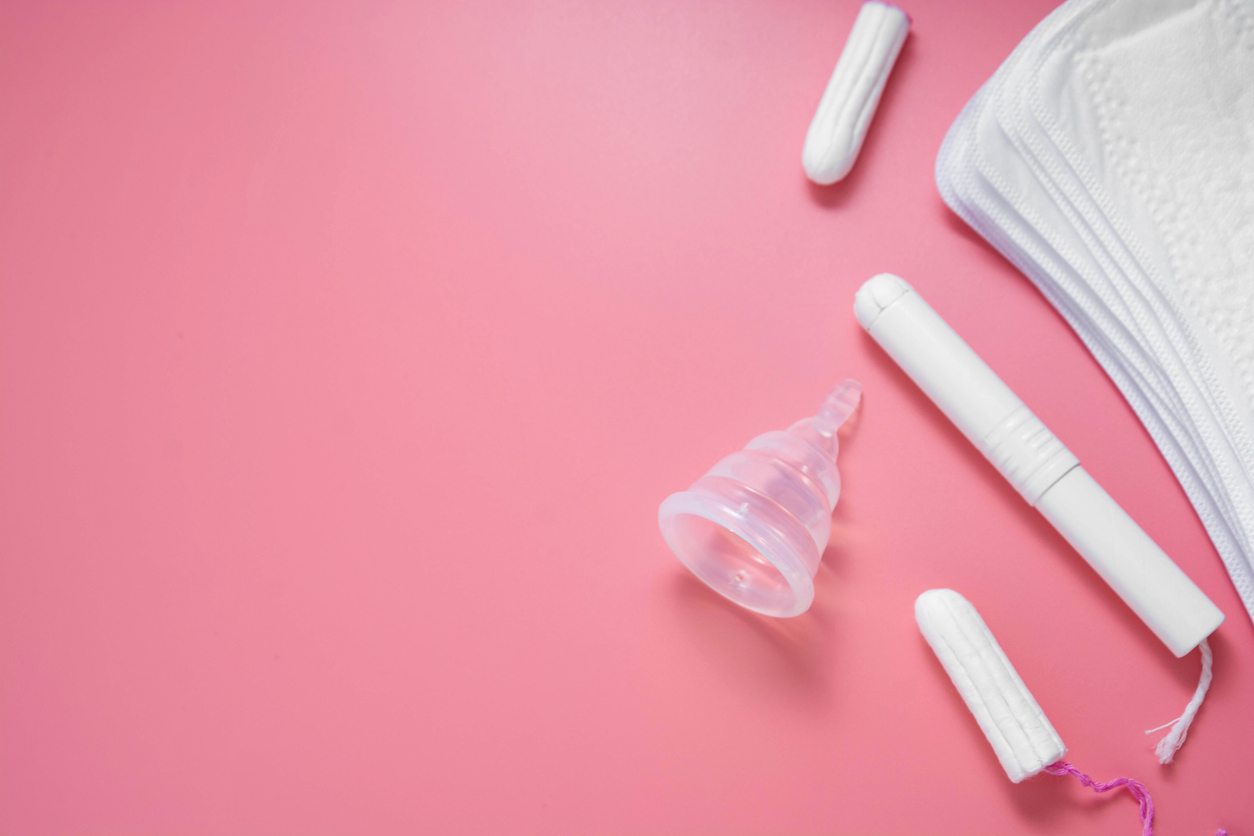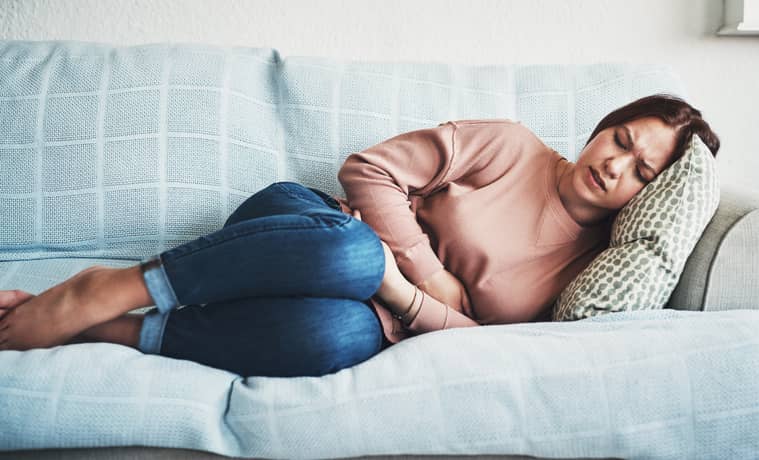Starting your periods is 1 of life’s milestones, and preparing your daughter for her first period will help make it a positive experience.
You can do this by making sure she has all the facts about how her body is changing, as well as the practical information she needs to manage day-to-day life with periods. Some well-shared information and reassurance will make all the difference when it comes to building her confidence.
Periods usually start at about 12 or 13 years old, but it varies. Some girls get them when they’re as young as 8. So it’s a good idea to talk to your daughter sooner rather than later, in case she’s an early starter.
Read on to find out everything you need to cover to give your daughter the best possible start on her journey into womanhood.
Where do I start?
First, why not refresh your own knowledge by reading our essential guide to periods? Making yourself the number-1 source of information about periods means your daughter won’t have to rely on information from less suitable sources.
Research by the World Health Organisation (WHO) shows that access to good, reliable information and support can help make managing periods easier, healthier and safer for young girls.
Now, on to ‘the talk’! Instead of having 1 big discussion about periods, you could start by introducing the topic casually into conversations. By drip-feeding information, you’ll build your daughter’s knowledge up over time. This method can also be less intimidating.
Keep discussions ‘light’, and try using humour to help ease any embarrassment.
Look out for opportunities and choose your moment. For example, you could start a conversation about periods when an advert for tampons comes on TV, or when you’re buying some at the supermarket for your own period.
The aim is to get away from any ideas about periods being scary or embarrassing, and to reassure her that starting her period is something to celebrate, rather than fear.
How much do I need to tell her?
Everything she needs to know to allow her to manage her periods and – in the not-too-distant future – birth control and sex as well. She will need to know how all the pieces of the puzzle fit together.
- reassure your daughter that starting her periods is a natural part of growing up and that millions of women have periods
- make periods feel normal by sharing any first-hand experience or knowledge you may have. Explain that everyone has a different period experience – it’s just another thing that makes us unique
- give her an overview of what to expect. For example, introduce the signs of periods, including cramps and other symptoms of premenstrual syndrome (PMS), such as tender breasts, mood swings and fatigue
- help her understand that, for most people, these symptoms can be managed with self-care and medication. Give examples of things that can help, such as painkillers, a warm bath and relaxation techniques (check this quick overview of period pain treatments
- cover period products, too. Explain her options, starting with the easier-to-use ‘beginner’ products, such as sanitary pads and period pants. And explain that, as she gets used to having periods, she may want to try tampons or a reusable menstrual cup
- talk about period hygiene. She needs to know that regularly washing and changing her period protection can lower the risk of infections, and also help avoid leaks and stains
- make the link between periods and pregnancy clear. So, over time, start to add in chats about relationships and how babies are made. By opening out the conversation to cover sex and contraception, you’ll ensure she has all the facts for when she becomes sexually active. Note that it’s physically possible to get pregnant before your periods start – because you can ovulate before having your first period. Worth remembering if your daughter is a late period starter
Quick checklist for parents
Here’s a quick list to ensure you have everything covered:
● the basics: explain ovulation and the hormone changes that trigger periods, how often you get periods, and how they continue until you go through the menopause
● symptoms: explain how much blood she should expect to lose, and talk about period pain and other symptoms of PMS
● pain relief: discuss self-care and medication
● period products: explain what’s available and go shopping for her choice of products
● be prepared: does your daughter have a good supply of products, and a bag with products and fresh underwear to take to school?
● work out her menstrual cycle: explain how she can keep tabs on her periods using a calendar or tracker – but that it might take a while before it settles down and becomes regular
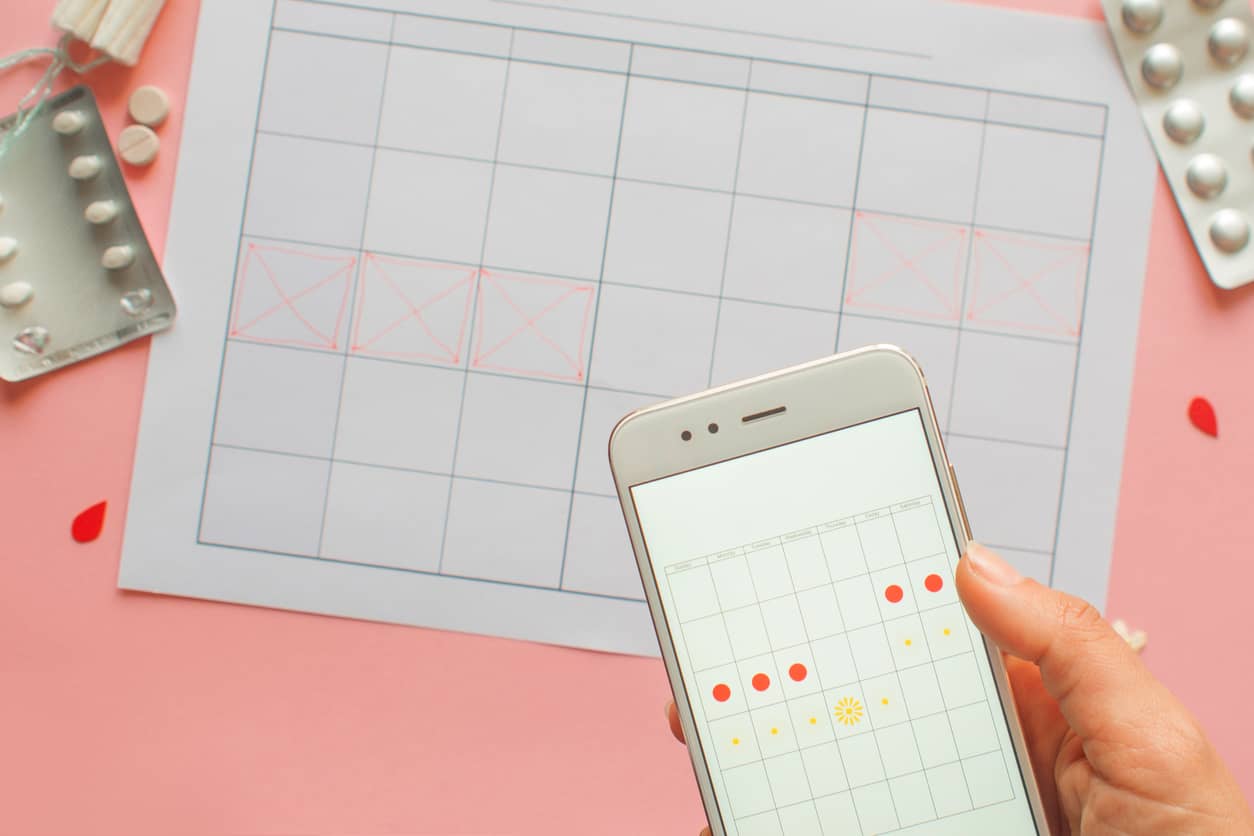
Try these conversation-starters
Finding it tricky to chat about periods? Try some of these handy phrases for talking about periods with your daughter – and be aware of our list of some things that are best left unsaid.
Scenario 1 – finding out how much she already knows about periods:
- “I’m proud of you – you’re growing up into such a strong, independent young woman. You know there are a few things you need to know now that you’re growing up …”
- “When I was growing up, we really didn’t talk about things like periods and sex, but I’d like to make sure you have all the information you need now that you’re growing up …”
- "I need to go to the shop to get some tampons – do you know what they are?”
Scenario 2 – if she’s struggling with cramps or other period symptoms:
- “I’m so sorry, is there anything I can do?”
- “When I had sore breasts, I used to…”
- “I’ll make you a cup of tea. Then why don’t you go and lie on the sofa/your bed, or have a warm bath?”
- “Do you want to take some painkillers to help?”
Scenario 3 – making sure she has everything she needs:
- “Do you have enough pads and some painkillers? I can pick some up for you”
- “I’ve always got a stock of pads in my cupboard, so help yourself if you run out”
- “Would you like some night-time pads to feel more comfortable in bed?”
- “You can use these sanitary bags for your used pads/tampons before you put them in the bin”
Scenario 4 – taking her mind off having a period:
- “How about we get some popcorn and watch a film?”
- “Would you like to come to the shops with me?”
- “Let’s make some cupcakes together”
Scenario 5 – if she’s anxious about going to school:
- “Don’t worry – you won’t be the only one. Remember that lots of other girls will be on their period, too”
- “Remember that only you know that you’re having your period. No one else can tell”
- “You can keep your pads/tampons in this bag with your toiletries. No one else will see them”
Scenario 6 – dealing with leaks:
- “Don’t worry, that’s going to wash out easily”
- “Maybe try some of my night-time pads – they work well for me”
- “Honestly, it happens to everyone”
- “Maybe change your pad more often, just to be on the safe side”
What NOT to say:
- “I’m sure it’s not that bad!”
- “You’ll cope!”
- “You’re going to have to get used to it!”
- “Well, you’ve ruined that towel/sheets/duvet cover”
- “Can’t you be more organised and stop using my pads/tampons”
- “Stop moping about and do something”
- “I know how you feel” – this won’t make her feel better right now. Avoid comparing how she’s feeling to your own experiences, unless they’re directly relevant
Why you should also speak to your son about periods
Periods shouldn’t only be a ‘girl thing’. Boys need to learn about the physical and emotional side of periods, too. This helps avoid those unhelpful remarks about women being grumpy or irritable because it’s “that time of the month”.
Brothers, husbands and partners all have a role to play in providing a supportive environment for your daughter.
Talk to your son in a similar way to your daughter about the practicalities of periods, and mention mood changes. You can explain what period pads and tampons are when you’re shopping.
Boys should be able to talk openly and sensibly about periods. They should be able to understand how periods can affect their sister, girlfriend or mum. They should also know about the link between periods and pregnancy.
Periods – your daughter’s questions answered
Wondering what questions your daughter might ask? You can use these Q&As to fill in her knowledge gaps. (Check our essential guide to periods for even more information.)
Why haven’t my periods started?
Just as girls’ bodies develop at different rates, so does the age at which their periods start. Some girls show signs of puberty – such as breast development and pubic hair – earlier than others.
Typically, girls start their periods when they’re around 12 years old, but everyone is different. Some get their periods when they’re only 8, while others get them as late as 15 or 16.
When you get your first period can be affected by lots of things, including:
- your hormones
- how much you exercise
- your weight
- your family history
Encourage your daughter to speak to a doctor or someone at your local women’s health clinic if she has any concerns.
She should also see a doctor if her periods haven’t started by the time she’s 15. This can help to check for any underlying causes of absent periods.
What are the signs that my periods are starting soon?
If you have pubic and underarm hair, and your breasts have started to grow, then there’s a good chance that your periods are on their way.
Usually, periods start from 2 to 2.5 years after your breasts start to develop, but everyone is different.
Some girls also get a white fluid or discharge from their vagina in the year before their periods start.
What’s PMS and will I get it?
Premenstrual syndrome (PMS) is the name given to the signs and symptoms some people get in the time leading up to each period.
Symptoms of PMS can include:
● spots (acne) breaking out or getting worse
● bloating in your tummy
● tender breasts
● feeling tired or irritable
● food cravings
● changes in your poo habits
Does everyone get period pain, and is it bad?
Lots of women get period pain (or cramps) just before or during their period, but not everyone is affected. It can also vary in intensity.
Most women manage period pain through self-care and painkillers from the pharmacy. You don’t have to suffer in silence.
If you want to explore other ways to manage period pain, speak to your doctor. There are other things they can suggest, including hormonal contraception – which teenagers can use safely. If your pain is very bad, they can also check to see if there’s an underlying cause.
Read more about ways to manage period pain.
How long will each period last?
Your body may take time to get into a regular pattern every month. During your first few periods, you may get only a little blood, for 1 or 2 days only.
As a general rule, women have a period every 28 days, but it differs from person to person. You’ll usually bleed for between 3 and 7 days every month, but again, everyone is different.
Some women have longer or shorter cycles. You might have a period every 21 days or every 35 days. Both are normal – as is anything within this range. (Read about the signs of irregular periods.)
As the months pass, you’ll come to know your body and what a ’normal’ period is for you. You’ll start to learn what to expect in terms of:
- when you get your periods
- how long they last
- whether your flow is light, medium or heavy
- whether to expect cramping or other symptoms of PMS – and how to cope
This knowledge will also help you to choose period products that work for you.
How do I keep track of my periods once they’ve started?
Use whatever system works for you! You can mark your period in your diary, or use a fitness app, your phone or a laptop calendar.
To estimate when your next period is due, you can count 28 days from the first day of your period. You may get shorter or longer cycles as your body settles into your ‘normal’ routine.
If you also track your symptoms each month, this can help you figure out how soon after your first cramps or your first craving your period will start. You can also keep a note of how many days you bleed for.
All this information can help you to get into a routine, and to plan your life.
There are various apps available to help track periods – including the Healthily self-care app, where you can set up a custom tracker and add notes for your period.
Will I bleed a lot? Can I bleed to death?
While it can seem like a lot of blood, the average blood loss is only 8 to 11 teaspoons over a whole period – and most women will lose less than 16 teaspoons.
Despite what you may have heard, the blood doesn’t gush out like a river. You might notice blood on the toilet paper after you pee, in your underwear or on your bed sheets. But it’s highly unlikely to be running down your legs during your first period.
What do I need for my first period?
It’s a good idea to be prepared before your periods start, so buy some period pads or period pants in advance.
Pack a spare pair of underwear and a pad in your school bag, and in your rucksack when you stay over with friends. It’ll ease any worry and ensure you’re prepared when your first period comes.
But if your period starts and you don’t have any period protection, don’t worry! Ask a friend, a friend’s parent, or a female teacher. There’s always someone who will have a spare pad, and most people will be only too happy to help.
If needed, you can make a temporary pad by folding several layers of toilet paper and placing them in your pants until you get home (or to a shop or pharmacy).
What’s best – pads or tampons?
That’s up to you. At first, you may find pads easier. But after a while, you may find other types of period products more convenient and better for different occasions – such as at night or when you’re playing sport – or for different levels of flow.
Tampons or menstrual cups that you insert into your vagina can be good for swimming or sport. As are all-in-one period pants – which are available in waterproof versions for swimming.
It may take a while to work out what suits your lifestyle and makes you feel most comfortable. There are no rules for period products – and you can mix and match. For example, you could use a tampon for swimming or during the day, then a pad at night. It’s up to you.
Read more about period products.
Can a tampon get stuck inside me?
While a tampon can’t get ‘lost’ inside you – it can’t travel beyond your vagina – it’s possible for it to go higher up in your vagina, meaning you can’t pull it out. This can happen if you put a second tampon in by mistake, or if the string you usually pull to remove it doesn’t unfold when you insert it.
If this happens to you, don’t panic. It’s usually simple to remove it yourself by following these steps:
- Wash your hands.
- Squat down like you would if you were pooing (this can bring the tampon closer to the entrance of your vagina).
- Put 1 finger into your vagina and move it around in a circle to try and find the tampon.
- If you do find it, try using 2 fingers to gently pull it out.
If you still can’t get your tampon out after this, go to your doctor or a sexual health clinic, so they can remove it for you.
It’s important to change your tampon regularly – at least every 4 to 8 hours. This can help to prevent a rare but serious condition called toxic shock syndrome (TSS).
Read more tampon questions answered.
What if blood leaks through my clothes?
Don’t worry – accidents like this happen to everyone from time to time. You may feel self-conscious or embarrassed, but you can usually deal with it:
- cover the area with your jacket, jumper or cardigan (or borrow 1 from a friend) until you can change
- keep a spare pair of pants in your bag until you’ve got the hang of your period flow and which period products are best for you
- if you’re worried, you could use a pad and tampon at the same time for extra protection
- you could also consider wearing dark-coloured clothes on your bottom half until you’re feeling more confident
Can other people tell if I’m on my period?
No! Only you – and anyone you choose to tell – will know. You may worry about other people being able to ‘smell’ your period, but that’s unlikely.
If you haven’t changed your pad for a few hours (or if you’ve had a leak), you may get a faint smell of blood. But it’s easily fixed by changing your pad or underwear, and washing morning and night during your period.
Read more about hygiene during your period.
Can I swim and exercise when I’m having my period?
There’s nothing to stop you doing everything you usually do. Tampons, menstrual cups and waterproof period pants are the go-to items for swimming, and they’re also the most discreet choice for playing sport. Pads can also work for non-pool activities.
With a bit of experimenting, you’ll work out what’s most comfortable and practical for you.
Can I get pregnant if I have my period?
Yes, you can. It’s possible to get pregnant at any time of the month, if sperm comes into contact with your vagina. (Read more about how you can get pregnant on your period.)
You should use contraception to prevent pregnancy, and use a condom to protect against sexually transmitted infections (STIs).
When to see a doctor
If your daughter’s periods haven't started and she’s 15, ask your doctor for a check-up.
The same applies if she’s 13 and doesn’t have any signs of puberty – such as hair on her underarms or genitals, or breast development.
If your daughter is using tampons, make sure she’s aware of the symptoms of TSS, and how to reduce the risks. She should know how to access emergency care if she develops symptoms, too.
You should also discuss other things that might mean she needs help from a doctor, including if:
● her periods stop suddenly or she starts ‘missing’ periods
● she starts bleeding more heavily, passing clots bigger than 2.5cm, needs to change pads more often than every 1 to 2 hours, or bleeds for longer than 7 days
● she bleeds when she’s not on her period
● her period pain is severe or she gets period pain when she’s not on her period
If you’re worried about your daughter’s period symptoms, use our Smart Symptom Checker to help you work out what to do next.


